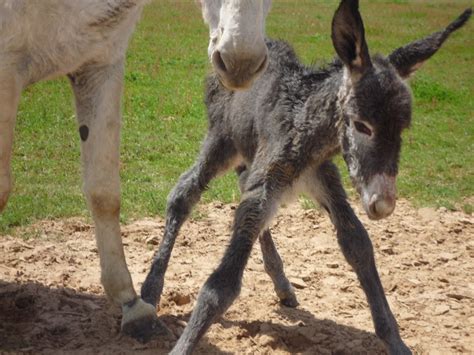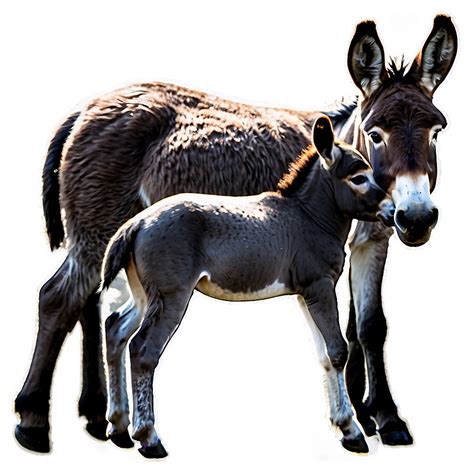
An adorable encounter between a tiny octopus and a diver off the coast of Kona, Hawaii, has captured hearts online, showcasing the cephalopod’s inquisitive nature and sparking discussions about marine conservation. The diver, exploring the ocean depths, presented the minuscule octopus with a shell, leading to a brief but charming interaction that highlights the intelligence and curiosity of these marine creatures.
Kona Coast Encounter: Diver’s Playdate With Tiny Octopus Charms the Internet
A captivating video of a miniature octopus engaging in a playful interaction with a diver near Kona, Hawaii, has gone viral, igniting a wave of admiration for the creature’s intelligence and prompting discussions about ocean conservation. The diver, during a routine exploration, offered the diminutive cephalopod a small shell, resulting in a heartwarming exchange that underscores the complex behaviors of marine life.
The encounter, filmed by the diver and shared across social media platforms, shows the octopus initially hesitant, then cautiously approaching the offered shell. The tiny creature then proceeds to examine the object, briefly clinging to it before eventually releasing it and jetting away. This interaction, though brief, has been interpreted by many as a form of play, demonstrating the sophisticated cognitive abilities of even the smallest octopus species.
“It was so tiny! It was smaller than my pinky nail,” the diver recounted, emphasizing the octopus’s minuscule size and adding to the overall charm of the encounter. The diver’s gentle approach and respect for the animal’s space further contributed to the positive reception of the video.
The Significance of Play in Cephalopods
While the definition of “play” in animals can be complex, scientists often define it as behavior that appears to lack immediate function, is voluntary, and may involve repetition or modification of actions. This interaction aligns with this understanding, suggesting that the octopus was engaging in exploratory behavior driven by curiosity rather than immediate survival needs.
Cephalopods, including octopuses, are renowned for their intelligence, problem-solving skills, and complex behaviors. Studies have shown that they are capable of learning, using tools, and even recognizing individual humans. This playdate encounter provides further anecdotal evidence of their cognitive abilities and their capacity for interaction with their environment.
Dr. Jennifer Mather, a leading cephalopod expert at the University of Lethbridge, has extensively studied the behavior of octopuses and other cephalopods. Her research suggests that play is an important aspect of their development and cognitive enrichment. “Play behavior in octopuses can involve manipulating objects, exploring new environments, and even engaging in social interactions,” Dr. Mather explained. “These activities likely contribute to their learning and problem-solving abilities.”
Conservation Concerns and the Impact of Human Interaction
While the video has generated widespread admiration, it also raises important questions about human interaction with marine life and the need for conservation efforts. The waters off the coast of Kona are home to a diverse array of marine species, many of which are vulnerable to habitat destruction, pollution, and climate change.
The diver in the video acted responsibly, ensuring not to stress or harm the octopus during the encounter. However, not all interactions between humans and marine life are conducted with such care. It is crucial to approach these animals with respect and awareness, minimizing any potential disturbance to their natural behaviors and habitats.
Organizations dedicated to marine conservation are working to protect these fragile ecosystems and educate the public about responsible interactions with marine life. These efforts include promoting sustainable tourism practices, reducing pollution, and advocating for the establishment of marine protected areas.
The incident highlights the importance of preserving marine biodiversity and protecting the habitats of these intelligent creatures. Experts urge caution in interacting with marine life, emphasizing the need to observe from a distance and avoid any actions that could cause stress or harm. “It’s wonderful to see people appreciate the beauty and intelligence of octopuses,” said marine biologist Dr. Anya Santos. “But it’s also important to remember that these animals are part of a delicate ecosystem and we need to be mindful of our impact.”
The Broader Context of Cephalopod Behavior
Octopuses are masters of disguise, capable of changing their skin color and texture to blend seamlessly with their surroundings. They are also highly intelligent, with the ability to solve complex puzzles and navigate intricate mazes. Their unique nervous system, with neurons distributed throughout their body, allows for independent decision-making in each arm.
Recent research has revealed even more fascinating aspects of octopus behavior. For example, scientists have discovered that octopuses can “sneeze” water at each other, potentially as a form of communication or social interaction. They have also observed octopuses engaging in cooperative hunting, working together to capture prey.
The ongoing exploration of cephalopod behavior continues to reveal the remarkable complexity and intelligence of these marine creatures. Each new discovery reinforces the importance of protecting their habitats and ensuring their survival.
The Ethical Considerations of Wildlife Photography and Videography
The popularity of wildlife videos, like the octopus playdate clip, also brings up ethical considerations regarding the potential impact of filming on animal behavior and habitats. While such videos can raise awareness and inspire conservation efforts, it’s essential that content creators prioritize the well-being of the animals they film.
Guidelines for ethical wildlife photography and videography include:
- Maintaining a safe distance from animals and avoiding any actions that could cause stress or disturbance.
- Avoiding the use of flash photography, which can disorient or frighten animals.
- Refraining from feeding animals, as this can alter their natural behaviors and create dependency.
- Respecting the animal’s habitat and avoiding any activities that could damage or pollute it.
By adhering to these guidelines, photographers and videographers can capture stunning images and videos of wildlife while minimizing their impact on the animals and their environment.
The Future of Octopus Research and Conservation
As our understanding of octopuses and other cephalopods continues to grow, so too does our appreciation for their intelligence, complexity, and ecological importance. Ongoing research efforts are focused on exploring their cognitive abilities, understanding their social behaviors, and assessing the threats they face in a changing ocean.
Conservation efforts are crucial for protecting octopus populations and their habitats. These efforts include:
- Establishing marine protected areas to safeguard critical octopus habitats.
- Promoting sustainable fishing practices to prevent overfishing of octopus populations.
- Reducing pollution and mitigating the impacts of climate change on marine ecosystems.
- Raising public awareness about the importance of octopus conservation and responsible interactions with marine life.
By working together, scientists, conservationists, and the public can ensure that these fascinating creatures continue to thrive in our oceans for generations to come.
The Power of Social Media in Raising Awareness
The viral nature of the octopus playdate video highlights the power of social media in raising awareness about marine life and conservation issues. By sharing these types of videos, individuals can help to educate others about the beauty and intelligence of these animals and inspire them to take action to protect them.
Social media can also be a powerful tool for promoting responsible tourism practices and discouraging activities that could harm marine life. By sharing information about ethical wildlife viewing and responsible ocean stewardship, individuals can help to create a culture of respect and conservation.
However, it’s also important to be critical of the information shared on social media and to verify the accuracy of claims before sharing them. Misinformation can be harmful to conservation efforts and can lead to misguided actions.
The Importance of Responsible Ocean Stewardship
The octopus playdate encounter serves as a reminder of the importance of responsible ocean stewardship. Our actions on land have a direct impact on the health of the ocean and the well-being of its inhabitants.
By reducing our consumption of single-use plastics, supporting sustainable seafood choices, and reducing our carbon footprint, we can all contribute to protecting the ocean and the creatures that call it home.
Education is also key. The more people understand about the ocean and the challenges it faces, the more likely they are to take action to protect it.
Further Research on Octopus Intelligence
The diver’s interaction with the octopus sparks further questions regarding the intelligence of the species. Further research into their cognitive abilities continues to reveal their complex understanding of the world around them. Some recent findings include:
- Problem-solving skills: Octopuses can solve complex puzzles and navigate mazes, demonstrating their ability to learn and adapt.
- Tool use: Some octopus species have been observed using tools, such as coconut shells, for shelter and defense.
- Social learning: Octopuses can learn from observing other octopuses, indicating a capacity for social learning.
- Memory: Octopuses have a remarkable memory, allowing them to remember past experiences and use that knowledge to inform their future behavior.
These findings, combined with anecdotal evidence like the playdate encounter, paint a picture of a highly intelligent and adaptable creature capable of complex thought and behavior.
The Impact of Climate Change on Octopus Habitats
Climate change poses a significant threat to octopus populations and their habitats. Rising ocean temperatures, ocean acidification, and changes in ocean currents can all have detrimental effects on octopus survival and reproduction.
- Rising ocean temperatures: Octopuses are sensitive to temperature changes, and rising ocean temperatures can stress them, making them more vulnerable to disease and predation.
- Ocean acidification: Ocean acidification can impact the development of octopus eggs and larvae, reducing their survival rates.
- Changes in ocean currents: Changes in ocean currents can alter the distribution of octopus prey, making it harder for them to find food.
Addressing climate change is crucial for protecting octopus populations and ensuring their long-term survival.
The Role of Marine Protected Areas
Marine protected areas (MPAs) are designated areas of the ocean that are protected from certain human activities, such as fishing and mining. MPAs can provide refuge for octopus populations and help to conserve their habitats.
Studies have shown that MPAs can be effective in increasing octopus populations and improving the health of marine ecosystems. By establishing and effectively managing MPAs, we can help to protect octopuses and other marine life from the impacts of human activities.
The Importance of Continued Monitoring
Continued monitoring of octopus populations and their habitats is essential for understanding the threats they face and developing effective conservation strategies. Monitoring efforts can include:
- Population surveys: Conducting regular surveys to track octopus populations and identify trends.
- Habitat assessments: Assessing the health of octopus habitats and identifying areas that are degraded or threatened.
- Genetic studies: Analyzing the genetic diversity of octopus populations to understand their resilience to environmental changes.
- Tagging and tracking: Tagging octopuses and tracking their movements to learn more about their behavior and habitat use.
By gathering data through monitoring efforts, scientists can gain a better understanding of the challenges facing octopuses and develop informed conservation plans.
FAQ Section
1. What happened in the viral video?
A diver off the coast of Kona, Hawaii, encountered a very small octopus and offered it a small shell. The octopus briefly interacted with the shell, seemingly exploring it, before swimming away. This interaction was filmed and shared online, quickly gaining popularity due to the octopus’s apparent curiosity and the gentle nature of the encounter.
2. Why is this interaction considered significant?
The interaction is significant because it provides further evidence of the intelligence and curiosity of octopuses. While the definition of “play” in animals can be complex, the octopus’s behavior suggests exploratory behavior driven by curiosity rather than immediate survival needs. This reinforces the understanding of cephalopods as highly intelligent creatures capable of complex thought and interaction with their environment.
3. What are the ethical considerations of filming wildlife encounters like this?
While such videos can raise awareness and inspire conservation efforts, it’s essential that content creators prioritize the well-being of the animals they film. Guidelines for ethical wildlife photography and videography include maintaining a safe distance, avoiding flash photography, refraining from feeding animals, and respecting the animal’s habitat. The diver in this instance appeared to act responsibly, minimizing disturbance to the octopus.
4. How does climate change affect octopuses?
Climate change poses a significant threat to octopus populations and their habitats. Rising ocean temperatures can stress them, ocean acidification can impact the development of their eggs and larvae, and changes in ocean currents can alter the distribution of their prey, making it harder for them to find food. Addressing climate change is crucial for protecting octopus populations and ensuring their long-term survival.
5. What can individuals do to help protect octopuses and their habitats?
Individuals can help protect octopuses and their habitats by reducing their consumption of single-use plastics, supporting sustainable seafood choices, reducing their carbon footprint, and advocating for the establishment of marine protected areas. Education is also key; the more people understand about the ocean and the challenges it faces, the more likely they are to take action to protect it.
The Importance of Responsible Tourism and Diving Practices
The location of the encounter, off the Kona coast of Hawaii, is a popular destination for diving and snorkeling. This highlights the importance of responsible tourism practices to minimize the impact on marine life. Divers should always adhere to guidelines for responsible diving, which include:
- Maintaining neutral buoyancy to avoid damaging coral reefs or disturbing marine animals.
- Avoiding touching or harassing marine life.
- Not feeding marine animals.
- Properly disposing of trash and avoiding the use of sunscreen containing harmful chemicals.
By following these guidelines, divers can help to protect the fragile marine ecosystems they explore and ensure that these areas remain healthy for future generations.
The Role of Citizen Science in Octopus Research
Citizen science initiatives can play a valuable role in octopus research and conservation. These initiatives involve engaging the public in data collection and analysis, helping scientists to gather more information about octopus populations, behavior, and habitats.
Examples of citizen science projects related to octopuses include:
- Reporting octopus sightings to online databases.
- Participating in beach cleanups to remove marine debris that can harm octopuses.
- Monitoring water quality in octopus habitats.
- Analyzing images and videos of octopuses to identify species and behaviors.
By participating in citizen science projects, individuals can contribute to the understanding and conservation of these fascinating creatures.
Octopus Farming: Ethical and Environmental Concerns
The increasing demand for octopus meat has led to the development of octopus farming. However, there are significant ethical and environmental concerns associated with this practice.
- Animal welfare: Octopuses are highly intelligent and sentient creatures, and farming them in confined conditions can raise serious animal welfare concerns.
- Environmental impact: Octopus farming can have a negative impact on the environment, including pollution from waste and the depletion of wild fish stocks used as feed.
- Sustainability: The long-term sustainability of octopus farming is questionable, given the high environmental costs and the potential for disease outbreaks.
Many animal welfare and conservation organizations oppose octopus farming due to these concerns. Consumers can help to discourage this practice by avoiding the consumption of octopus meat.
The Evolutionary History of Octopuses
Octopuses have a long and fascinating evolutionary history, dating back over 500 million years. They are part of a group of mollusks called cephalopods, which also includes squid, cuttlefish, and nautiluses.
Octopuses evolved from shelled ancestors, eventually losing their shells and developing their unique body plan, characterized by eight arms, a soft body, and remarkable camouflage abilities.
The evolutionary success of octopuses is attributed to their intelligence, adaptability, and ability to thrive in a wide range of marine environments.
The Nervous System of the Octopus
The octopus nervous system is unlike that of any other animal. It consists of a central brain and a distributed network of neurons in each arm, allowing each arm to act independently.
This unique nervous system enables octopuses to perform complex tasks, such as manipulating objects, solving puzzles, and navigating intricate environments.
The octopus’s ability to change its skin color and texture is also controlled by its nervous system, allowing it to camouflage itself effectively and communicate with other octopuses.
The Role of Octopuses in Marine Ecosystems
Octopuses play an important role in marine ecosystems as both predators and prey. They feed on a variety of animals, including crabs, shrimp, and fish, and are themselves preyed upon by larger fish, sharks, and marine mammals.
Octopuses help to control populations of their prey species and contribute to the overall balance of marine ecosystems.
Their presence is an indicator of a healthy marine environment, and their decline can have cascading effects on the entire ecosystem.
The Future of Ocean Exploration and Discovery
The oceans remain largely unexplored, and there is still much to learn about the creatures that inhabit them. Continued ocean exploration and research are essential for understanding the threats facing marine ecosystems and developing effective conservation strategies.
Advances in technology, such as remotely operated vehicles (ROVs) and autonomous underwater vehicles (AUVs), are making it possible to explore deeper and more remote areas of the ocean than ever before.
These explorations are likely to reveal even more fascinating discoveries about octopuses and other marine life, further highlighting the importance of protecting these valuable ecosystems.
The Importance of Education and Outreach
Education and outreach are crucial for raising awareness about the importance of ocean conservation and inspiring people to take action to protect marine life.
Schools, museums, and aquariums can play a vital role in educating the public about octopuses and other marine creatures, as well as the challenges they face.
Online resources, such as websites, social media, and educational videos, can also be effective in reaching a wider audience and promoting ocean conservation.
By educating and inspiring the next generation of ocean stewards, we can help to ensure that octopuses and other marine life continue to thrive for generations to come.









